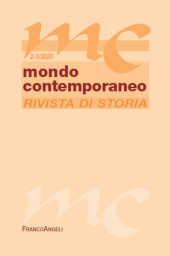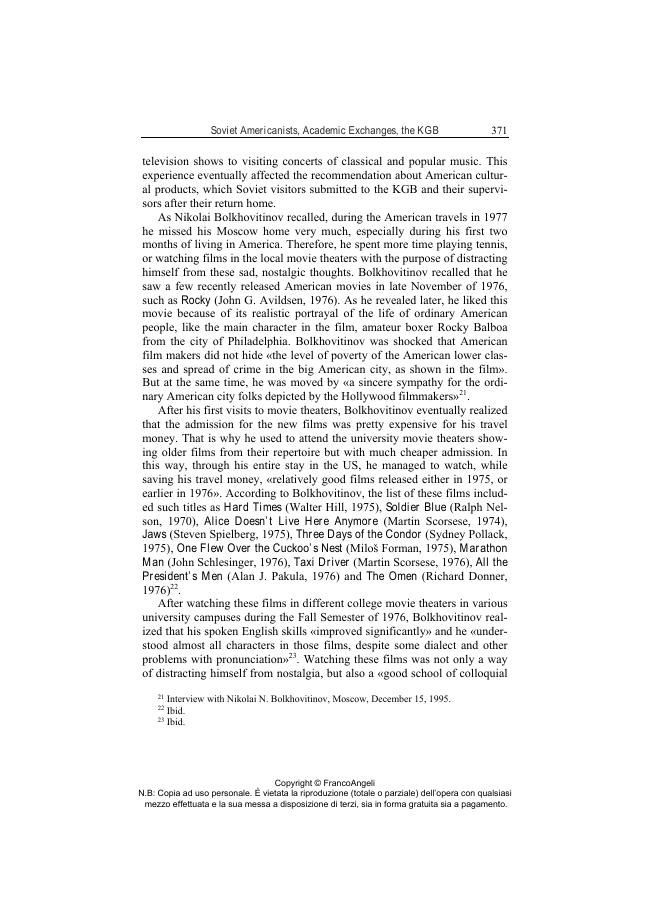Soviet Americanists, academic exchanges, the KGB and the promotion of video media from capitalist America during the Cold War.
361-380 p.
This essay is an attempt, made by using the personal stories of Soviet Americani-sts, to study the role of Soviet academic visitors, approved and supervised by the KGB, in promoting the cultural products from the USA - mainly such visual media as films and television - in the USSR during the period of academic exchanges after 1959. During their visits to the United States, Soviet Americanists used their leisure time not only for sightseeing, visiting museums and shopping, but also for various forms of cultural entertainment, from watching films and television shows to visiting concerts of classical and popular music. These experiences eventually affected the recommenda-tions about American cultural products, which Soviet visitors submitted to the KGB and their supervisors after their return home.
During the 1970s and the 1980s, Soviet administration benefited from such useful advice about American popular films and televi-sion programs, which could be promoted in the USSR. Even the KGB administration in the Soviet Union studied the lists of recommendations made by those scholars, and used them for promoting the "progressive, humanistic" American cultural products among local Communist and Komsomol leaders for the education of Soviet audience. [Publisher's text].
Attraverso le vicende personali degli americanisti sovietici, il presente saggio si prefigge di studiare il ruolo svolto dai docenti universitari in visita negli Stati Uniti sotto la supervisione del KGB nel promuovere i prodotti culturali americani, soprattutto film e programmi televisivi, in Urss dopo il 1959. Durante le loro visite negli Usa, gli americanisti sovietici usarono il loro tempo libero non solo per giri turistici, visite ai musei e shopping, ma anche per assistere a diverse forme di intrattenimento come film e programmi televisivi, concerti di musica classica e popolare. Queste esperienze influenzarono le raccomandazioni riguardo ai prodotti culturali americani che i visitatori russi riportavano al KGB e ai loro supervisori una volta tornati in Urss. Durante gli anni Settanta e Ottanta, il governo sovietico si giovò di queste utili informazioni sui film e i programmi televisivi popolari americani per decidere quali tra questi potevano essere diffusi in Urss.
Anche il KGB in Unione Sovietica studiò le liste di suggerimenti redatte da questi studiosi, e le utilizzò per promuovere i prodotti culturali "progressisti" americani tra i locali leader comunisti e del Komsomol per l'educazione del pubblico sovietico. [Testo dell'editore].
-
Articles from the same issue (available individually)
-
Information
ISSN: 1972-4853
DISCIPLINES
KEYWORDS
- Americanisti sovietici, scambi accademici, KGB, Guerra Fredda culturale, media visuali, prodotti culturali americani
- Soviet Americanists, academic exchanges, the KGB, cultural Cold War, visual media, American cultural products



